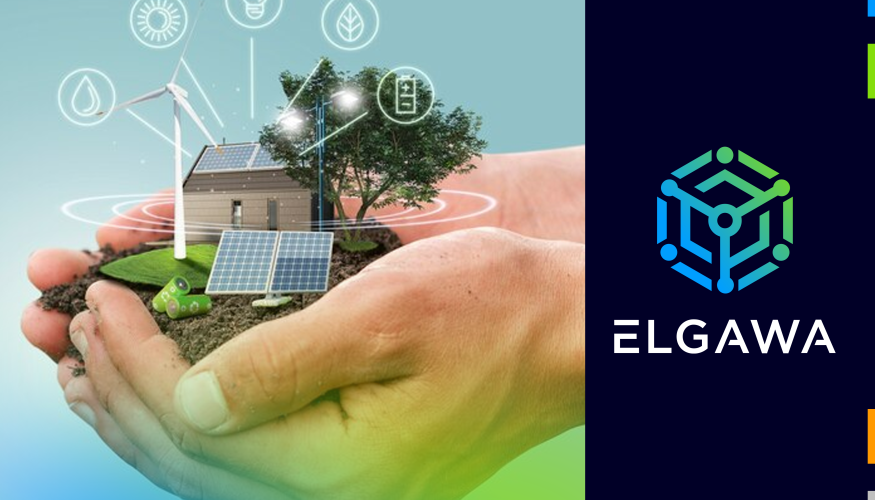A Sustainable Future with solar energy systems
A Sustainable Future for Suriname with solar energy systems
Introduction
Suriname, a nation nestled in the heart of South America, is poised for a transformative shift towards a sustainable future, powered by the sun's limitless energy. As a country blessed with an abundance of sunshine, Suriname has the opportunity to harness this clean and renewable resource to fuel its homes, businesses, and industries, paving the way for a cleaner, more resilient, and energy-independent nation.
The Sun's Promise
Solar energy offers a multitude of benefits for Suriname, addressing both environmental and economic concerns:
- Reduced Reliance on Fossil Fuels: Solar energy, a renewable resource, offers liberation from the dependence on finite fossil fuels. This transition will enhance energy security and mitigate the environmental impact of fossil fuel consumption.
- Environmental Sustainability: Solar energy stands as a beacon of clean and sustainable power, producing no harmful emissions or pollutants. By switching to solar, Suriname can significantly reduce its carbon footprint, contributing to global efforts to combat climate change.
- Energy Independence: Solar energy production is decentralized, allowing power generation at the point of consumption. This distributed generation system reduces reliance on centralized power plants and grids, enhancing energy independence and reducing transmission and distribution losses.
- Economic Growth: The solar energy sector is a rapidly growing industry, creating new employment opportunities and fostering technological innovation. Investing in solar energy can stimulate economic growth and diversification in Suriname.
Exploring Solar Energy Systems
Solar energy systems can be broadly categorized into three types: on-grid, off-grid, and hybrid systems, each catering to specific needs and applications.
- On-grid solar systems: Connected to the electrical grid, these systems allow surplus energy generated by the solar panels to be fed back into the grid for credits. On-grid systems are ideal for residential and commercial applications with established grid connectivity.
- Off-grid solar systems: Operating independently of the grid, these systems store solar energy in batteries for use when the sun is not shining. Off-grid systems are suitable for remote areas or applications where grid access is limited.
- Hybrid solar systems: Combining the features of both on-grid and off-grid systems, these systems offer flexibility and resilience. Hybrid systems are suitable for a wider range of applications, allowing grid connectivity and battery storage.
SolaX Inverters: Powering Suriname's Solar Future
At the heart of solar energy systems lies the inverter, the crucial component that converts the direct current (DC) electricity generated by solar panels into usable alternating current (AC) electricity. Solax Power, a leading manufacturer of solar inverters, stands out for its high efficiency, reliability, and innovative features.
Solax inverters offer a range of benefits for Suriname's solar energy systems:
- Unmatched Efficiency: Solax inverters boast industry-leading efficiency rates, maximizing the power output of solar panels and reducing energy losses.
- Unwavering Reliability: Built to withstand the harsh tropical climate of Suriname, Solax inverters ensure consistent performance and long-term durability.
- Smart Technology: Solax inverters incorporate advanced features such as smart monitoring and energy management, enabling real-time optimization of solar energy usage.
Case Studies: Using Solar energy for a Sustainable community
The usefulness of solar energy is not merely theoretical; it is evident in the real-world experiences of individuals, businesses, and communities across the world. Let's delve into a few inspiring case studies:
- Empowering Rural Communities: In remote villages, where grid connectivity is limited, solar power has played a crucial role in bringing reliable and sustainable electricity to homes and schools. These communities now enjoy access to clean energy, enabling them to improve their quality of life and livelihoods.
- Fueling Business Growth: For businesses seeking to reduce their environmental impact and enhance sustainability, solar energy has emerged as a game-changer. Even businesses in Suriname have successfully integrated the systems into their operations, resulting in significant reductions in energy costs and carbon emissions.
Addressing Common Concerns
While the transition to solar energy offers a promising path towards sustainability, some potential adopters may harbor concerns or misconceptions. Let's address these common questions to clarify and encourage informed decision-making:
- The initial investment in solar energy systems may seem steep, but long-term savings on energy bills and government incentives can significantly offset these costs. Moreover, the value of solar energy systems often increases property value.
- Solar energy systems require minimal maintenance, and inverters such as Solax are built to last, providing years of reliable service.
- Solar energy is a clean and renewable resource, producing no harmful emissions or pollutants. By switching to solar, individuals and businesses can significantly reduce their carbon footprint and contribute to environmental protection.
A Shared Responsibility: Paving the Way for Sustainability
The transition to a solar-powered future in Suriname requires a collective effort from individuals, businesses, and the government. Residents can adopt solar energy for their homes, reducing their reliance on grid electricity and lowering their energy bills. When it comes to businesses, it would be most beneficial to invest in solar energy systems to power their operations, promoting sustainability and reducing their carbon footprint. The government can play a crucial role by implementing policies that incentivize solar energy adoption, providing financial support, and investing in solar infrastructure.
Conclusion
Solar energy presents a beacon of hope for Suriname's future, offering a path towards sustainability, energy independence, and economic growth. By harnessing the power of the sun, Suriname can embrace a cleaner, more resilient, and prosperous future for its people and the planet.





